Spotlight
A selection of stories from across the Federation
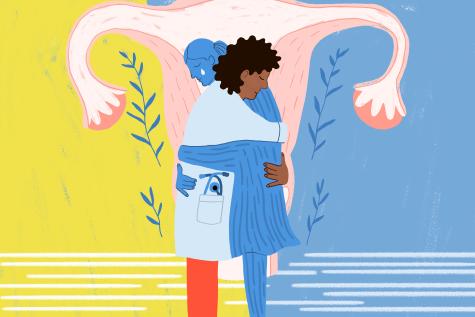
Ukraine
Listening Can Save Lives: Empowering Family Doctors in Ukraine to Support Women Facing Violence
Since the onset of the Russian invasion, countless people in Ukraine have faced not only the trauma of war, but the increased threat and terrifying reported incidence of abuse, SGBV and trafficking.
Most Popular This Week
Ukraine
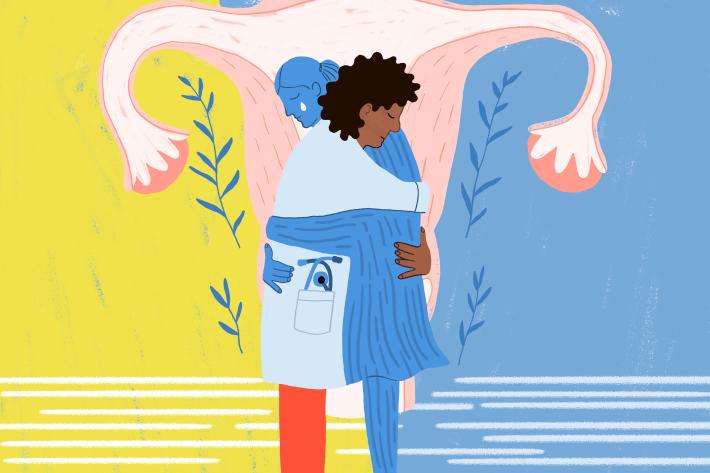
Listening Can Save Lives: Empowering Family Doctors in Ukraine to Support Women Facing Violence
Since the onset of the Russian invasion, countless people in Ukraine have faced not only the trauma of war, but the increased threat and terrifying reported incidence of
Romania
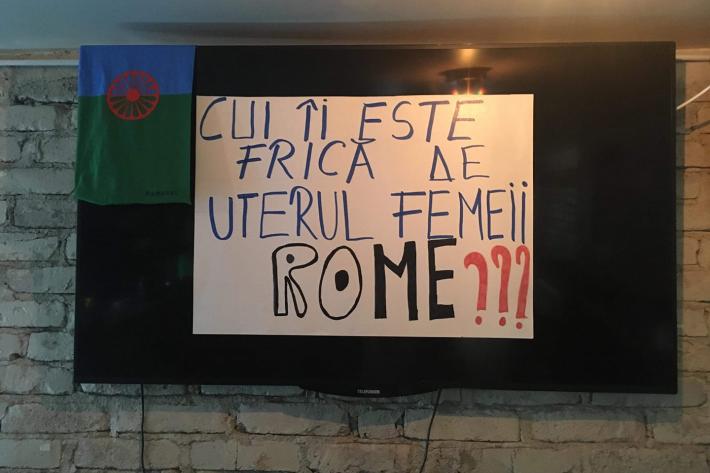
Roma Women in Romania Face Old and New Threats to Abortion Care Access
For Roma women and girls in Romania, the struggle to access abortion care brings them into contact with horrific levels of racism and discrimination, hardw
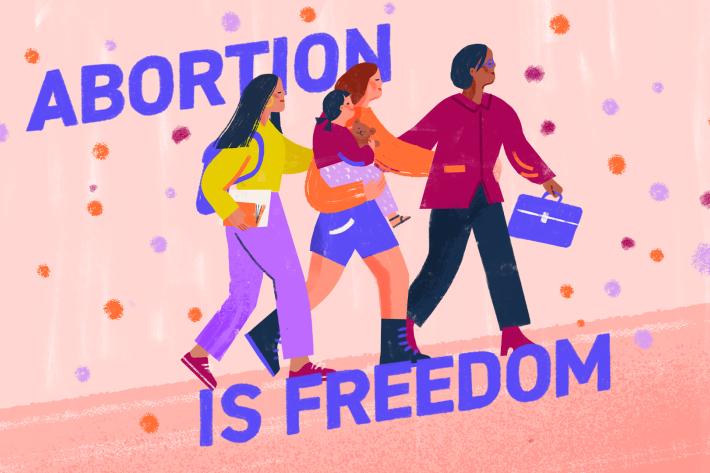
Croatia: Obstacles to abortion care make access virtually non-existent
Hitting the road in the desperate search for abortion care
Romania
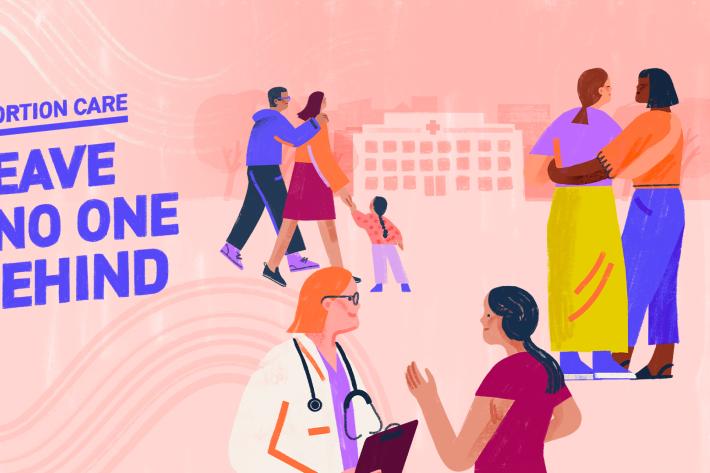
High costs and broken health system freeze many out of abortion care in Romania
On paper, abortion care is legal up to 14 weeks in Romania – though only free in emergencies – and should be provided by all hospitals with obstetrics and gynaecology departments.
Germany
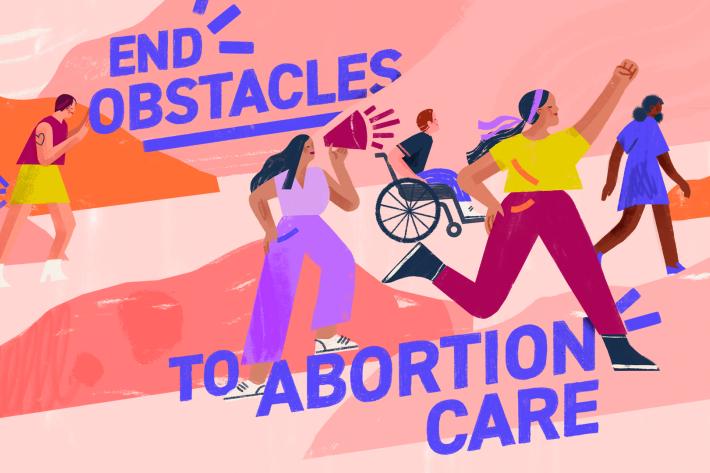
Germany's archaic abortion law creates huge burden for people needing care
For a country long reputed to have one of the more progressive healthcare systems in Europe, Germany’s law on abortion – a health issue affecting millions of people – remains firm
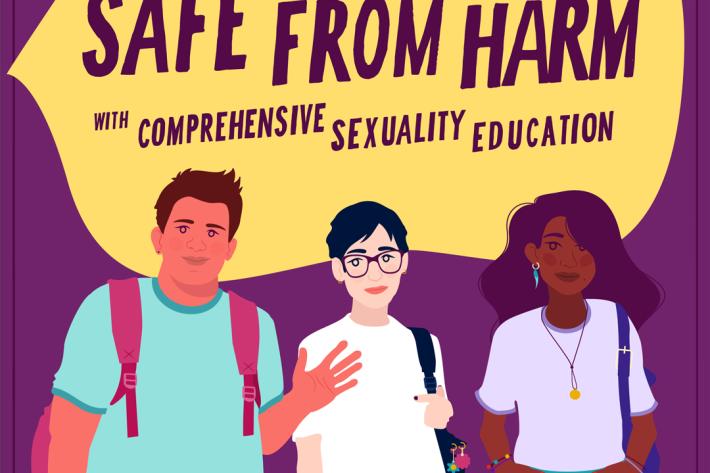
Sexuality education keeps young people safe from harm
Comprehensive sexuality and relationship education is a vital prevention tool in the fight
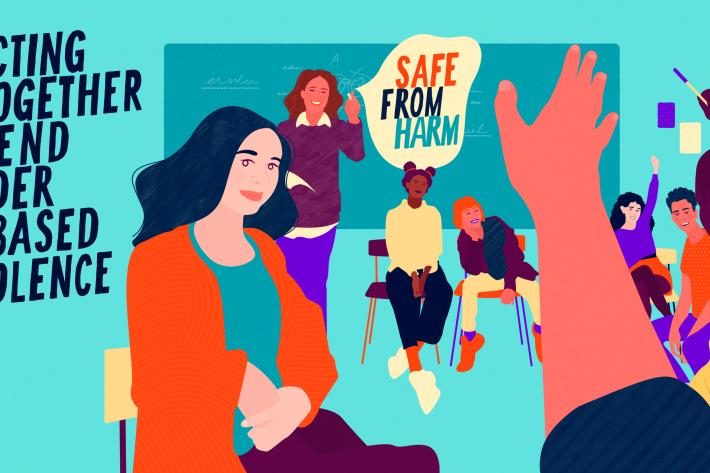
Belgium’s consent law is clear: Absence of no doesn’t mean yes
‘Rape isn’t always something that happens when you are dragged into an alleyway’, says Heleen Heysse, Policy Officer at
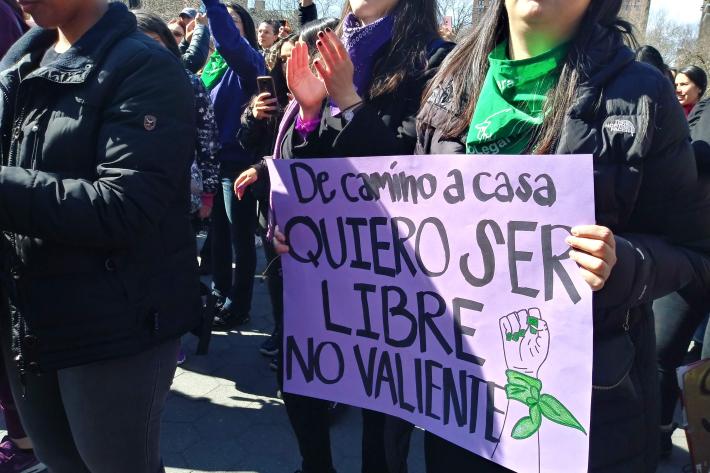
Legislating the path to consent: Spain's Yes Means Yes law
‘Everyone has the right to live without violence. You can have sex without love, but always with care’.
Filter our stories by:


| 13 October 2022
"It would make a real difference if we could be open with health professionals about what really concerns us."
We spoke to young people from the Western Balkans about how their access to sexual and reproductive health and rights was affected by the COVID pandemic, and asked them about their vision for re-designing a more youth-friendly future in which young people can flourish. Alex is a 19-year-old LGBTIQ girl, studying at university in Blagoevgrad, Bulgaria. As a peer educator, she supports other young people to learn and develop crucial life skills relating to their sexual and reproductive health. Alex, describe your experience of access to SRHR* education, information and care before and during COVID. My access to sexual and reproductive healthcare before COVID was relatively normal, for example a gynaecologist visit, but during the pandemic, it was rather harder to go because I had to present a negative COVID test to be examined. At some point, in-person consultations with doctors were extremely limited, unless it was with reference to COVID or life-threatening - so regular check-ups were not really happening. I didn’t receive any adequate sexuality education either before or during the pandemic. The only time sexual health was discussed in my 12 years of schooling was back in elementary school and it only included only a talk with the girls on menstrual pads and periods. I believe online information became more accessible because of COVID. As a result of the limited consultations with professionals, more people sought answers on the Internet. Of course, we must keep in mind that information has to be checked carefully. Also, reliable information in Bulgarian is very limited. Did anything change for the better during the pandemic in terms of access to SRHR? I suppose more information regarding SRHR became available online because of the huge demand. A good thing is that the information is still relevant today even though COVID is no longer an urgent crisis. Personally, I got into the habit of looking for answers myself and checking if the source was reliable or not. Other than that, I would not say that COVID had any positives. What was the biggest challenge to young people’s SRHR during the pandemic? How could decision-makers/medical professionals have removed this obstacle? One of the biggest problems was the misleading and unreliable sources of information about sexual and reproductive health. In addition, adequate information is mostly in English. I believe a fact-checking system to verify all factual information could be helpful in preventing the spread of misinformation. I faced that problem when I and other 3 friends conducted a few educational workshops on the topic of comprehensive sexuality education. While putting together the information we needed, we came across numerous invalid data and false statements. What lessons should governments and professionals who work with youth learn from the pandemic about how to look after young people’s health and wellbeing in a crisis? From what I have seen, many adults do not seem to understand the burden this crisis has had on us and therefore neglect our mental health. Affordable and regular psychologist appointments should be a priority. There is this stigma around mental health that you seek help only if you are “not normal”. That is completely false and puts our generation under pressure and makes us not take proper care of our well-being (which often includes going to a psychologist). Also, many of the professionals (both teachers and medical practitioners) were sharing their personal and controversial opinion on the pandemic and vaccinations which has to be limited. A personal experience I had was when I went to get vaccinated and my GP would not allow me to, saying that it was unnecessary and even “dangerous”. What is your number 1 recommendation on what is needed to make services more youth-friendly? What difference would this make in the life of a young person like you? More young and inclusive professionals working in the sphere are needed. For example, many of my female peers insist that female gynecologists examine them. LGBT+ inclusivity is also important, as currently many of us cannot share a key part of our life neither with a gynecologist nor a psychologist. The difference would be that we will be more open and share what really concerns us so we can seek adequate help. It is much easier to talk to someone close to your age or background. What helped you to become engaged as an activist? How has this experience been so far? The idea that I can do something about the desperate need for a change and make my voice heard was what helped me get involved. So far, I mostly enjoy working with other young people and seeing them as determined and hopeful as I am. Every new idea has been welcomed with enthusiasm and encouragement by many of my peers, which makes it clear that youngsters are looking forward to a change and improvement. However, as I mentioned, we held several workshops about comprehensive sexuality education and we faced many obstacles. The project was very scarcely funded, which made it very hard to implement properly and exactly how we have envisioned it. Also, finding people to attend the workshops was fairly hard as well and we could not get any support from our teachers and school staff. They did not welcome the idea because the topics of sexual health and LGBT+ inclusivity are still taboo in our society - so they were scared of how the parents would react. On the other hand, the people that came to the workshops had very encouraging feedback and even a demand for more similar events. * SRHR = sexual and reproductive health and rights Interview conducted by Viktoria Nikolova, a member of the regional youth group of the IPPF EN project Youth Voices, Youth Choices, funded by MSD for Mothers

| 25 October 2022
"It would make a real difference if we could be open with health professionals about what really concerns us."
We spoke to young people from the Western Balkans about how their access to sexual and reproductive health and rights was affected by the COVID pandemic, and asked them about their vision for re-designing a more youth-friendly future in which young people can flourish. Alex is a 19-year-old LGBTIQ girl, studying at university in Blagoevgrad, Bulgaria. As a peer educator, she supports other young people to learn and develop crucial life skills relating to their sexual and reproductive health. Alex, describe your experience of access to SRHR* education, information and care before and during COVID. My access to sexual and reproductive healthcare before COVID was relatively normal, for example a gynaecologist visit, but during the pandemic, it was rather harder to go because I had to present a negative COVID test to be examined. At some point, in-person consultations with doctors were extremely limited, unless it was with reference to COVID or life-threatening - so regular check-ups were not really happening. I didn’t receive any adequate sexuality education either before or during the pandemic. The only time sexual health was discussed in my 12 years of schooling was back in elementary school and it only included only a talk with the girls on menstrual pads and periods. I believe online information became more accessible because of COVID. As a result of the limited consultations with professionals, more people sought answers on the Internet. Of course, we must keep in mind that information has to be checked carefully. Also, reliable information in Bulgarian is very limited. Did anything change for the better during the pandemic in terms of access to SRHR? I suppose more information regarding SRHR became available online because of the huge demand. A good thing is that the information is still relevant today even though COVID is no longer an urgent crisis. Personally, I got into the habit of looking for answers myself and checking if the source was reliable or not. Other than that, I would not say that COVID had any positives. What was the biggest challenge to young people’s SRHR during the pandemic? How could decision-makers/medical professionals have removed this obstacle? One of the biggest problems was the misleading and unreliable sources of information about sexual and reproductive health. In addition, adequate information is mostly in English. I believe a fact-checking system to verify all factual information could be helpful in preventing the spread of misinformation. I faced that problem when I and other 3 friends conducted a few educational workshops on the topic of comprehensive sexuality education. While putting together the information we needed, we came across numerous invalid data and false statements. What lessons should governments and professionals who work with youth learn from the pandemic about how to look after young people’s health and wellbeing in a crisis? From what I have seen, many adults do not seem to understand the burden this crisis has had on us and therefore neglect our mental health. Affordable and regular psychologist appointments should be a priority. There is this stigma around mental health that you seek help only if you are “not normal”. That is completely false and puts our generation under pressure and makes us not take proper care of our well-being (which often includes going to a psychologist). Also, many of the professionals (both teachers and medical practitioners) were sharing their personal and controversial opinion on the pandemic and vaccinations which has to be limited. A personal experience I had was when I went to get vaccinated and my GP would not allow me to, saying that it was unnecessary and even “dangerous”. What is your number 1 recommendation on what is needed to make services more youth-friendly? What difference would this make in the life of a young person like you? More young and inclusive professionals working in the sphere are needed. For example, many of my female peers insist that female gynecologists examine them. LGBT+ inclusivity is also important, as currently many of us cannot share a key part of our life neither with a gynecologist nor a psychologist. The difference would be that we will be more open and share what really concerns us so we can seek adequate help. It is much easier to talk to someone close to your age or background. What helped you to become engaged as an activist? How has this experience been so far? The idea that I can do something about the desperate need for a change and make my voice heard was what helped me get involved. So far, I mostly enjoy working with other young people and seeing them as determined and hopeful as I am. Every new idea has been welcomed with enthusiasm and encouragement by many of my peers, which makes it clear that youngsters are looking forward to a change and improvement. However, as I mentioned, we held several workshops about comprehensive sexuality education and we faced many obstacles. The project was very scarcely funded, which made it very hard to implement properly and exactly how we have envisioned it. Also, finding people to attend the workshops was fairly hard as well and we could not get any support from our teachers and school staff. They did not welcome the idea because the topics of sexual health and LGBT+ inclusivity are still taboo in our society - so they were scared of how the parents would react. On the other hand, the people that came to the workshops had very encouraging feedback and even a demand for more similar events. * SRHR = sexual and reproductive health and rights Interview conducted by Viktoria Nikolova, a member of the regional youth group of the IPPF EN project Youth Voices, Youth Choices, funded by MSD for Mothers

| 17 January 2022
My friends think I’m crazy, because I only have one child. But I know I can decide when to have another. Vaska's Story
“I got married quite early, when I was 17. A year and a half later I got pregnant and had a baby girl. Now she is 18 months old. My husband started a job in the city in a company which is popular among Roma people, and I stayed home to look after our child. Last year I met Valya, the health mediator. She told me they organize meetings, and she invited me to take part in a women’s group. Initially I didn’t know what we would do, but it was interesting as there were other women like me. During these meetings we spoke very often about contraception in general, and especially about IUDs. The women shared what they had heard and what they knew about them. It was strange, but most of them said that IUDs harm women’s health. I also understood that the men are worried about their wives’ health and that that’s why they don’t approve of contraception. I heard women say other things as well, like you can still get pregnant with an IUD, that you may gain weight, that IUDs move in the body, and so on and so forth. One day, during a meeting, we spoke again about contraception, and more precisely, what we thought was a good family size. People had different views. I personally think that it is not so much about the number of children as it is about being able to make sure you have everything you need - clothes, food, the possibility to educate them. Everyone should take these issues into consideration before having children. I thought more often about myself and my family. We didn’t have high incomes and we could barely afford our bills. Our daughter was a baby and it was challenge to provide for her. My husband and I started to talk about it, and I started to think about getting an IUD. That’s why six months ago I decided to have one fitted, and I feel fine. It isn’t painful and I haven’t gained weight. My friends think I’m crazy, because I only have one child. But I know that I’ll be able to decide when to have another one.” When vulnerable communities, volunteers and professionals unite for reproductive freedom, they are a powerful force for change. Watch Vaska’s story and others in our short film about the amazing work our members in Bulgaria, Romania and Serbia are doing to support the lifelong reproductive health and safety of Roma girls, women and young people.

| 20 September 2021
My friends think I’m crazy, because I only have one child. But I know I can decide when to have another. Vaska's Story
“I got married quite early, when I was 17. A year and a half later I got pregnant and had a baby girl. Now she is 18 months old. My husband started a job in the city in a company which is popular among Roma people, and I stayed home to look after our child. Last year I met Valya, the health mediator. She told me they organize meetings, and she invited me to take part in a women’s group. Initially I didn’t know what we would do, but it was interesting as there were other women like me. During these meetings we spoke very often about contraception in general, and especially about IUDs. The women shared what they had heard and what they knew about them. It was strange, but most of them said that IUDs harm women’s health. I also understood that the men are worried about their wives’ health and that that’s why they don’t approve of contraception. I heard women say other things as well, like you can still get pregnant with an IUD, that you may gain weight, that IUDs move in the body, and so on and so forth. One day, during a meeting, we spoke again about contraception, and more precisely, what we thought was a good family size. People had different views. I personally think that it is not so much about the number of children as it is about being able to make sure you have everything you need - clothes, food, the possibility to educate them. Everyone should take these issues into consideration before having children. I thought more often about myself and my family. We didn’t have high incomes and we could barely afford our bills. Our daughter was a baby and it was challenge to provide for her. My husband and I started to talk about it, and I started to think about getting an IUD. That’s why six months ago I decided to have one fitted, and I feel fine. It isn’t painful and I haven’t gained weight. My friends think I’m crazy, because I only have one child. But I know that I’ll be able to decide when to have another one.” When vulnerable communities, volunteers and professionals unite for reproductive freedom, they are a powerful force for change. Watch Vaska’s story and others in our short film about the amazing work our members in Bulgaria, Romania and Serbia are doing to support the lifelong reproductive health and safety of Roma girls, women and young people.

| 13 October 2022
"It would make a real difference if we could be open with health professionals about what really concerns us."
We spoke to young people from the Western Balkans about how their access to sexual and reproductive health and rights was affected by the COVID pandemic, and asked them about their vision for re-designing a more youth-friendly future in which young people can flourish. Alex is a 19-year-old LGBTIQ girl, studying at university in Blagoevgrad, Bulgaria. As a peer educator, she supports other young people to learn and develop crucial life skills relating to their sexual and reproductive health. Alex, describe your experience of access to SRHR* education, information and care before and during COVID. My access to sexual and reproductive healthcare before COVID was relatively normal, for example a gynaecologist visit, but during the pandemic, it was rather harder to go because I had to present a negative COVID test to be examined. At some point, in-person consultations with doctors were extremely limited, unless it was with reference to COVID or life-threatening - so regular check-ups were not really happening. I didn’t receive any adequate sexuality education either before or during the pandemic. The only time sexual health was discussed in my 12 years of schooling was back in elementary school and it only included only a talk with the girls on menstrual pads and periods. I believe online information became more accessible because of COVID. As a result of the limited consultations with professionals, more people sought answers on the Internet. Of course, we must keep in mind that information has to be checked carefully. Also, reliable information in Bulgarian is very limited. Did anything change for the better during the pandemic in terms of access to SRHR? I suppose more information regarding SRHR became available online because of the huge demand. A good thing is that the information is still relevant today even though COVID is no longer an urgent crisis. Personally, I got into the habit of looking for answers myself and checking if the source was reliable or not. Other than that, I would not say that COVID had any positives. What was the biggest challenge to young people’s SRHR during the pandemic? How could decision-makers/medical professionals have removed this obstacle? One of the biggest problems was the misleading and unreliable sources of information about sexual and reproductive health. In addition, adequate information is mostly in English. I believe a fact-checking system to verify all factual information could be helpful in preventing the spread of misinformation. I faced that problem when I and other 3 friends conducted a few educational workshops on the topic of comprehensive sexuality education. While putting together the information we needed, we came across numerous invalid data and false statements. What lessons should governments and professionals who work with youth learn from the pandemic about how to look after young people’s health and wellbeing in a crisis? From what I have seen, many adults do not seem to understand the burden this crisis has had on us and therefore neglect our mental health. Affordable and regular psychologist appointments should be a priority. There is this stigma around mental health that you seek help only if you are “not normal”. That is completely false and puts our generation under pressure and makes us not take proper care of our well-being (which often includes going to a psychologist). Also, many of the professionals (both teachers and medical practitioners) were sharing their personal and controversial opinion on the pandemic and vaccinations which has to be limited. A personal experience I had was when I went to get vaccinated and my GP would not allow me to, saying that it was unnecessary and even “dangerous”. What is your number 1 recommendation on what is needed to make services more youth-friendly? What difference would this make in the life of a young person like you? More young and inclusive professionals working in the sphere are needed. For example, many of my female peers insist that female gynecologists examine them. LGBT+ inclusivity is also important, as currently many of us cannot share a key part of our life neither with a gynecologist nor a psychologist. The difference would be that we will be more open and share what really concerns us so we can seek adequate help. It is much easier to talk to someone close to your age or background. What helped you to become engaged as an activist? How has this experience been so far? The idea that I can do something about the desperate need for a change and make my voice heard was what helped me get involved. So far, I mostly enjoy working with other young people and seeing them as determined and hopeful as I am. Every new idea has been welcomed with enthusiasm and encouragement by many of my peers, which makes it clear that youngsters are looking forward to a change and improvement. However, as I mentioned, we held several workshops about comprehensive sexuality education and we faced many obstacles. The project was very scarcely funded, which made it very hard to implement properly and exactly how we have envisioned it. Also, finding people to attend the workshops was fairly hard as well and we could not get any support from our teachers and school staff. They did not welcome the idea because the topics of sexual health and LGBT+ inclusivity are still taboo in our society - so they were scared of how the parents would react. On the other hand, the people that came to the workshops had very encouraging feedback and even a demand for more similar events. * SRHR = sexual and reproductive health and rights Interview conducted by Viktoria Nikolova, a member of the regional youth group of the IPPF EN project Youth Voices, Youth Choices, funded by MSD for Mothers

| 25 October 2022
"It would make a real difference if we could be open with health professionals about what really concerns us."
We spoke to young people from the Western Balkans about how their access to sexual and reproductive health and rights was affected by the COVID pandemic, and asked them about their vision for re-designing a more youth-friendly future in which young people can flourish. Alex is a 19-year-old LGBTIQ girl, studying at university in Blagoevgrad, Bulgaria. As a peer educator, she supports other young people to learn and develop crucial life skills relating to their sexual and reproductive health. Alex, describe your experience of access to SRHR* education, information and care before and during COVID. My access to sexual and reproductive healthcare before COVID was relatively normal, for example a gynaecologist visit, but during the pandemic, it was rather harder to go because I had to present a negative COVID test to be examined. At some point, in-person consultations with doctors were extremely limited, unless it was with reference to COVID or life-threatening - so regular check-ups were not really happening. I didn’t receive any adequate sexuality education either before or during the pandemic. The only time sexual health was discussed in my 12 years of schooling was back in elementary school and it only included only a talk with the girls on menstrual pads and periods. I believe online information became more accessible because of COVID. As a result of the limited consultations with professionals, more people sought answers on the Internet. Of course, we must keep in mind that information has to be checked carefully. Also, reliable information in Bulgarian is very limited. Did anything change for the better during the pandemic in terms of access to SRHR? I suppose more information regarding SRHR became available online because of the huge demand. A good thing is that the information is still relevant today even though COVID is no longer an urgent crisis. Personally, I got into the habit of looking for answers myself and checking if the source was reliable or not. Other than that, I would not say that COVID had any positives. What was the biggest challenge to young people’s SRHR during the pandemic? How could decision-makers/medical professionals have removed this obstacle? One of the biggest problems was the misleading and unreliable sources of information about sexual and reproductive health. In addition, adequate information is mostly in English. I believe a fact-checking system to verify all factual information could be helpful in preventing the spread of misinformation. I faced that problem when I and other 3 friends conducted a few educational workshops on the topic of comprehensive sexuality education. While putting together the information we needed, we came across numerous invalid data and false statements. What lessons should governments and professionals who work with youth learn from the pandemic about how to look after young people’s health and wellbeing in a crisis? From what I have seen, many adults do not seem to understand the burden this crisis has had on us and therefore neglect our mental health. Affordable and regular psychologist appointments should be a priority. There is this stigma around mental health that you seek help only if you are “not normal”. That is completely false and puts our generation under pressure and makes us not take proper care of our well-being (which often includes going to a psychologist). Also, many of the professionals (both teachers and medical practitioners) were sharing their personal and controversial opinion on the pandemic and vaccinations which has to be limited. A personal experience I had was when I went to get vaccinated and my GP would not allow me to, saying that it was unnecessary and even “dangerous”. What is your number 1 recommendation on what is needed to make services more youth-friendly? What difference would this make in the life of a young person like you? More young and inclusive professionals working in the sphere are needed. For example, many of my female peers insist that female gynecologists examine them. LGBT+ inclusivity is also important, as currently many of us cannot share a key part of our life neither with a gynecologist nor a psychologist. The difference would be that we will be more open and share what really concerns us so we can seek adequate help. It is much easier to talk to someone close to your age or background. What helped you to become engaged as an activist? How has this experience been so far? The idea that I can do something about the desperate need for a change and make my voice heard was what helped me get involved. So far, I mostly enjoy working with other young people and seeing them as determined and hopeful as I am. Every new idea has been welcomed with enthusiasm and encouragement by many of my peers, which makes it clear that youngsters are looking forward to a change and improvement. However, as I mentioned, we held several workshops about comprehensive sexuality education and we faced many obstacles. The project was very scarcely funded, which made it very hard to implement properly and exactly how we have envisioned it. Also, finding people to attend the workshops was fairly hard as well and we could not get any support from our teachers and school staff. They did not welcome the idea because the topics of sexual health and LGBT+ inclusivity are still taboo in our society - so they were scared of how the parents would react. On the other hand, the people that came to the workshops had very encouraging feedback and even a demand for more similar events. * SRHR = sexual and reproductive health and rights Interview conducted by Viktoria Nikolova, a member of the regional youth group of the IPPF EN project Youth Voices, Youth Choices, funded by MSD for Mothers

| 17 January 2022
My friends think I’m crazy, because I only have one child. But I know I can decide when to have another. Vaska's Story
“I got married quite early, when I was 17. A year and a half later I got pregnant and had a baby girl. Now she is 18 months old. My husband started a job in the city in a company which is popular among Roma people, and I stayed home to look after our child. Last year I met Valya, the health mediator. She told me they organize meetings, and she invited me to take part in a women’s group. Initially I didn’t know what we would do, but it was interesting as there were other women like me. During these meetings we spoke very often about contraception in general, and especially about IUDs. The women shared what they had heard and what they knew about them. It was strange, but most of them said that IUDs harm women’s health. I also understood that the men are worried about their wives’ health and that that’s why they don’t approve of contraception. I heard women say other things as well, like you can still get pregnant with an IUD, that you may gain weight, that IUDs move in the body, and so on and so forth. One day, during a meeting, we spoke again about contraception, and more precisely, what we thought was a good family size. People had different views. I personally think that it is not so much about the number of children as it is about being able to make sure you have everything you need - clothes, food, the possibility to educate them. Everyone should take these issues into consideration before having children. I thought more often about myself and my family. We didn’t have high incomes and we could barely afford our bills. Our daughter was a baby and it was challenge to provide for her. My husband and I started to talk about it, and I started to think about getting an IUD. That’s why six months ago I decided to have one fitted, and I feel fine. It isn’t painful and I haven’t gained weight. My friends think I’m crazy, because I only have one child. But I know that I’ll be able to decide when to have another one.” When vulnerable communities, volunteers and professionals unite for reproductive freedom, they are a powerful force for change. Watch Vaska’s story and others in our short film about the amazing work our members in Bulgaria, Romania and Serbia are doing to support the lifelong reproductive health and safety of Roma girls, women and young people.

| 20 September 2021
My friends think I’m crazy, because I only have one child. But I know I can decide when to have another. Vaska's Story
“I got married quite early, when I was 17. A year and a half later I got pregnant and had a baby girl. Now she is 18 months old. My husband started a job in the city in a company which is popular among Roma people, and I stayed home to look after our child. Last year I met Valya, the health mediator. She told me they organize meetings, and she invited me to take part in a women’s group. Initially I didn’t know what we would do, but it was interesting as there were other women like me. During these meetings we spoke very often about contraception in general, and especially about IUDs. The women shared what they had heard and what they knew about them. It was strange, but most of them said that IUDs harm women’s health. I also understood that the men are worried about their wives’ health and that that’s why they don’t approve of contraception. I heard women say other things as well, like you can still get pregnant with an IUD, that you may gain weight, that IUDs move in the body, and so on and so forth. One day, during a meeting, we spoke again about contraception, and more precisely, what we thought was a good family size. People had different views. I personally think that it is not so much about the number of children as it is about being able to make sure you have everything you need - clothes, food, the possibility to educate them. Everyone should take these issues into consideration before having children. I thought more often about myself and my family. We didn’t have high incomes and we could barely afford our bills. Our daughter was a baby and it was challenge to provide for her. My husband and I started to talk about it, and I started to think about getting an IUD. That’s why six months ago I decided to have one fitted, and I feel fine. It isn’t painful and I haven’t gained weight. My friends think I’m crazy, because I only have one child. But I know that I’ll be able to decide when to have another one.” When vulnerable communities, volunteers and professionals unite for reproductive freedom, they are a powerful force for change. Watch Vaska’s story and others in our short film about the amazing work our members in Bulgaria, Romania and Serbia are doing to support the lifelong reproductive health and safety of Roma girls, women and young people.









